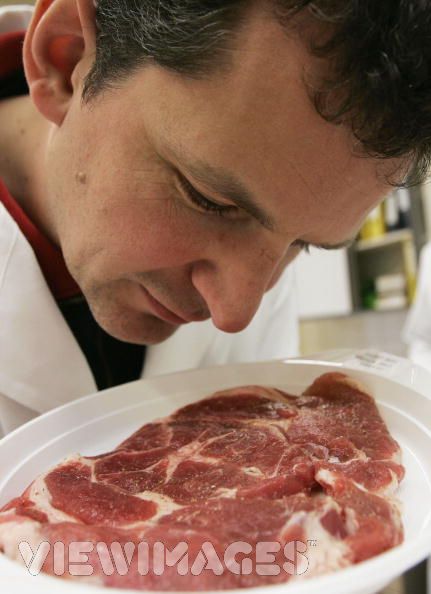When it comes to the safety of the food supply, I generally ignore the chatter from Washington. If a proposal does emerge, such as the creation of a single food inspection agency, I ask, Will it actually make food safer? Will fewer people get sick?
 Much is being made this morning about a new report from the U.S. General Accounting Office, and how the U.S. is lagging behind other countries – countries that have single food inspection systems. The Chicago Tribune says, On food safety, U.S. not No. 1, while the L.A. Times offers an editorial, U.S. lags on food regulation.
Much is being made this morning about a new report from the U.S. General Accounting Office, and how the U.S. is lagging behind other countries – countries that have single food inspection systems. The Chicago Tribune says, On food safety, U.S. not No. 1, while the L.A. Times offers an editorial, U.S. lags on food regulation.
So I spent the end of another stellar day in Melbourne, and the beginning of a new day back home, by reading the report and comparing it to some of the Washington chatter.
Senator Dick Durbin (D-IL) said,
"Today’s GAO report shows that America ranked eighth out of eight countries — dead last — in terms of national food safety systems.”
There was no such ranking in the report. There was no ranking at all in the report.
Congresswoman Rosa L. DeLauro (CT-3) said,
“This GAO report highlights how effectively a single food safety agency could protect our food supply. … By focusing on the entire food supply chain, placing primary responsibility for food safety on producers, and ensuring that food imports meet equivalent safety standards. …”
The U.S. system already does that. And the report says nothing about how a single food inspection agency could better accomplish such tasks.
The Center for Science in the Public Interest says,
“The GAO report also shows that creating a unified food safety program is technologically and economically feasible, and most important, effective in helping to reduce foodborne illness.”
There were no measures of effectiveness for any of the single food inspection agencies, other than whether public opinion or confidence in the shiny, happy new agencies increased over time based on self-reported surveys. A few advertisements could have accomplished that.
There was certainly no mention of any agency reducing the incidence of foodborne illness. The seven countries studied – Canada, UK, New Zealand, Ireland, Denmark, Germany and The Netherlands – said they reorganized their food inspection agencies to improve effectiveness and efficiency; not one said to improve public health and have fewer sick people.
The GAO report — Selected Countries’ Systems Can Offer Insights into Ensuring Import Safety and Responding to Foodborne Illness – did say:
“The burden for food safety in most of the selected countries lies primarily with food producers, rather than with inspectors, although inspectors play an active role in overseeing compliance. This principle applies to both domestic and imported products.”
That’s good.
“None of the selected countries had comprehensively evaluated its reorganized food safety system … Most of the selected countries use proxy measures, such as public opinion surveys, to assess their effectiveness. Public opinion in several countries has improved in recent years.”
That’s bad.
In Canada, “At the consumer end of the spectrum, the food safety agency educates Canadians about safe food-handling practices and various food safety risks through its Web site, food safety fact sheets, and the Canadian Partnership for Consumer Food Safety Education, a group of industry, consumer, and government organizations that jointly develop and implement a national program to educate consumers on how to safely handle food.”
That’s awful.
To summarize: no rankings, no measures of effectiveness, and not much fact-checking.
Should there be a single food inspection agency in the U.S.? Maybe. But will it enhance the safety of the food supply? Will it mean fewer sick people?

.jpg) “… the advice is being set more firmly in the wider sustainability context and consumers are now being asked to think about the choices they make when they choose which fish to eat.”
“… the advice is being set more firmly in the wider sustainability context and consumers are now being asked to think about the choices they make when they choose which fish to eat.”
 Much is being made this morning about a new report from the
Much is being made this morning about a new report from the 